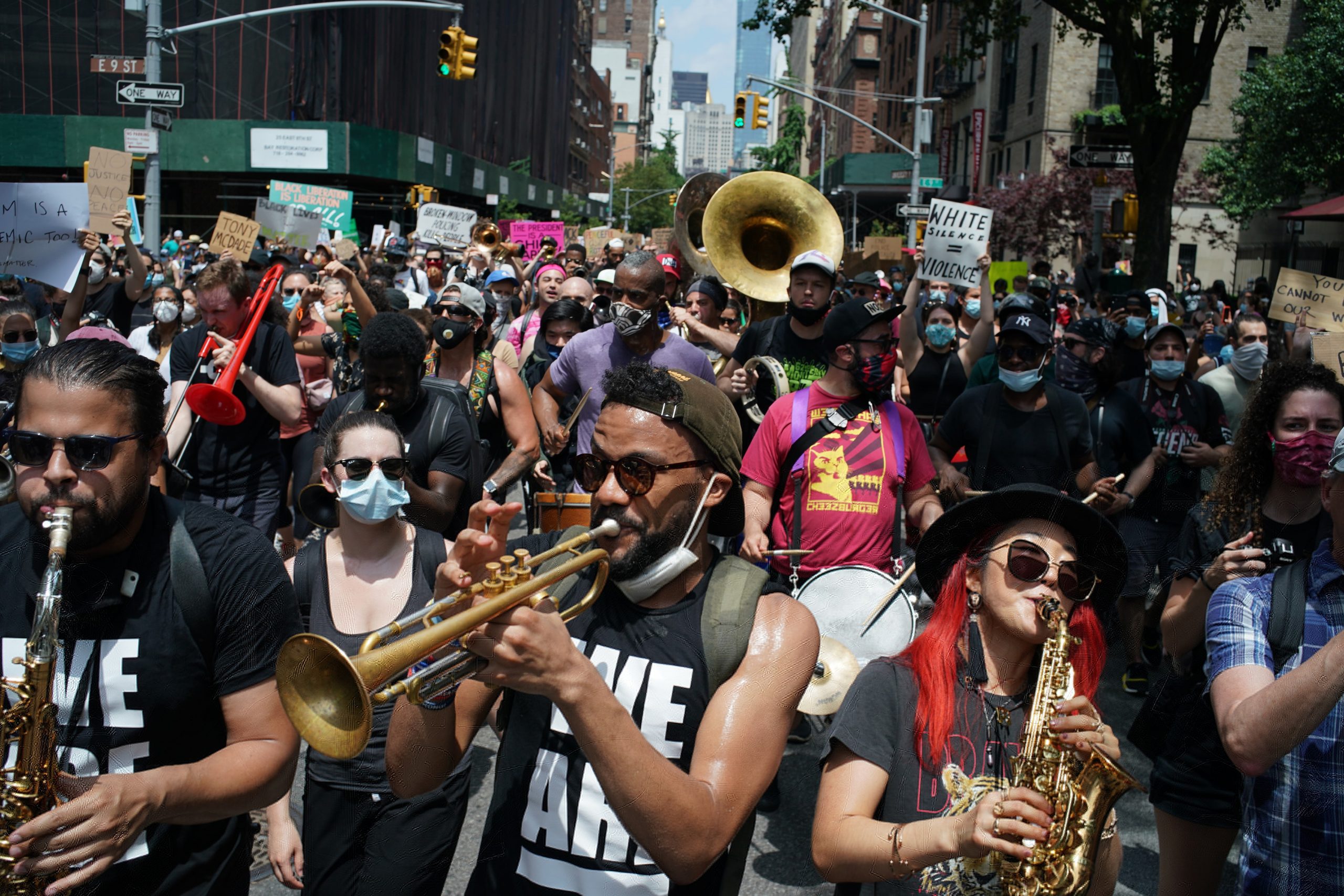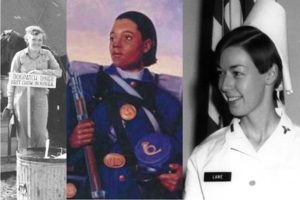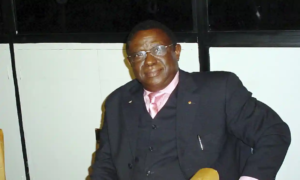Allyship for Black Lives Matter is soaring as it should be, with many allies learning how to best support the Black community as we go. You’ve likely heard about #BlackoutTuesday causing unintended obstruction of resources on the BLM hashtag.
Black square contention overpowered other discourse that was far more important to the movement at large. But it also underscored an important question: What is the ‘right’ way to be an impactful ally, onlineand in person? As a white woman who will never understand the lived Black experience in America, but is devoted to doing better, I’ve had the privilege of conducting research in order to learn about racism rather than experiencing it myself. We can — and must — educate ourselves, be self-critical of our own mistakes and improve upon our prior efforts immediately.
First and foremost: Silence is violence. Sen. Corey Booker (D-N.J.) stated in a recent interview with Stephen Colbert that the biggest threats to racial progress are not white supremacists, but rather argued that the major barriers against uplifting and empowering Black lives extend far beyond “the vitriolic words and violent actions” of abusers of power to include “the appalling silence and inaction of good people.” This silence and inaction reinforces the status quo and allows unjust violence to continue. In his 1963 Letter from a Birmingham Jail, Dr. Martin Luther King Jr. wrote: “I have almost reached the regrettable conclusion that the … great stumbling block in the stride toward freedom is not the White Citizens Councilor or the Ku Klux Klanner, but the white moderate who is more devoted to order than to justice.”
On the other hand, allyship without substance silences what we need to hear and learn from Black activists. Blackout Tuesday participants faced criticism for not only their negative impact, but also their purported intent: Posting an empty black square is blatant virtue signaling, especially when one’s caption offers no resources or even a stance on the issue. For many, an empty black square was the picture-perfect symbol for an empty promise.
Performative social media allyship is, in essence, akin to cultural appropriation. Much like being an avid hip hop music consumer who dips in and out of Black culture when convenient is unacceptable, to post online but avoid the work of activism is to culturally appropriate this movement to feel like a good personor, especially for those who were noticeably late to show support, avoid being labeled a bad one. To be silent altogether is even more troubling.
To elevate the value of mere social media allyship, we must ask ourselves: When reposting content from Black people, are we honoring diversity across the continuum of Black and Brown skin tones? Same goes for Black people with marginalized intersectional identities: Across gender, sexual orientation, socioeconomic status? Are we celebrating Black folks who wear their natural hair, or are we inadvertently perpetuating the pressure to conform and assimilate with narrow Eurocentric beauty standards?
We owe this new degree of introspection to BLM both infiltrating mainstream media and blocking out content we usually engage with. (As Dan Levy noted, selfies at the pool distract from the movement and send the message that one has the freedom to carry on as normal during an urgent nationwide fight for racial justice.) Resources are being handed to us on a silver platter. There is no excuse not to engage.
Social media is comfortable, convenient and, by design and definition, performative. But it’s also the reason change is happening. Evidence of police brutality wouldn’t reach mass audiences without it. On TikTok, a non-Black friend denounced “cliché social media posts, cringey insta story trends and performative activism,” instead advising to “protect black people at rallies, give protestors supplies, amplify black voices, donate $$$…” In other words, do the real work. But we wouldn’t know how without the resources made accessible by this radical surge in social media support, nor could thousands of protestors assemble at record rates. Nor would we have collectively internalized the urgency and necessity to mobilize at all.
But social media is under zero circumstances the endgame for getting involved. What now? Don’t listen to me, listen to Black activists such as Mireille Harper on how to be anti-racist through non-optical allyship. Harper defines optical allyship as “only serv[ing] at the surface level to platform the ‘ally.’ It makes a statement but doesn’t go beneath the surface and is not aimed at breaking away from the systems of power that oppress.” Non-optical allyship includes “checking in on Black friends, family, partners, loved ones, and colleagues” while understanding that it is not their job to educate us. We must “educate [ourselves] on the systemic oppression that Black people have faced throughout history and from which white people have benefited.”
Consider The Conscious Kid’s graphic on overt vs. covert white supremacy and Courtney Ahn’s guide to white privilege. Engage further with Sofia Keane ’19’s anti-racism reading list, Ava DuVernay’s documentary 13th on mass incarceration as it relates to slavery and Trevor Noah’s explanation of the racial injustice domino effect. Throughout the unlearning and relearning process, Harper says, “it is necessary to feel guilt, shame, and anger [without centering] this narrative around yourself.”
Paramount to non-optical allyship is action. Get in the streets if you’re able (if not, read Virtual Protesting 101). Follow @justiceforgeorgenyc for nationwide protest updates. If you’re a non-Black ally, use your body to protect Black bodies. Anyone skeptical of efforts toward police abolition: consider this perspective.
Check out @maxineaviva’s lists of petitions to sign, organizations and bail out funds to support, Black businesses and artists to champion, podcasts to listen to and social media accounts to diversify your feed. As you consider how deep to dig into your pockets, play Class Privilege at Cornell Bingo courtesy of Jessie Liu ‘20. Add up your total and donate accordingly. Then play again. Here’s a guide on accessing corporate wealth to double or triple your donations.
America was founded on slavery. To quote Splinter Magazine: “The system isn’t broken. It’s working exactly as designed.” Dismantling systemic racism means digging beneath outright acts of violence, not just when a big news story breaks but on a consistent basis. We must engage with these gut-wrenching truths and align our words with our actions.
We must also confront the beliefs we’ve internalized from those in our lives who do not agree with us. We must unlearn in order to better ourselves and guide those people toward joining the right side of history alongside us.
In the long term, Saturday Night Live comedian Ego Nwodim hopes that allies “examine the ways you’ve personally benefited from and upheld these systems, have hard conversations, and hold the people who look like you accountable.”
NYC-based influencer Kira West ’15, whose brand focuses on inclusive wellness, expressed that she “champions allyship” and hopes that this current momentum takes allies “further than a popularity contest and leads to a commitment to justice, equality, and supporting the Black community moving forward.”
Nicole Rovine is a senior in the School of Hotel Administration. She can be reached at nrovine@cornellsun.com.




